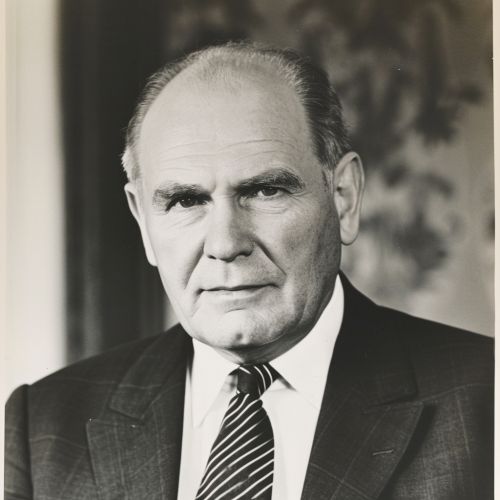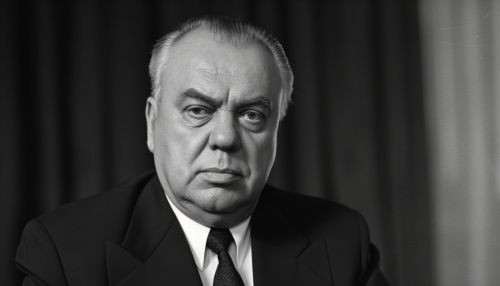Konstantin Chernenko
Early Life
Konstantin Ustinovich Chernenko was born on September 24, 1911, in the small village of Bolshaya Tes, in the Yeniseysk Governorate of the Russian Empire. His parents, Ustin Demidovich and Yelizaveta Alekseyevna, were poor peasants who worked the land to provide for their nine children. Chernenko's early life was marked by hardship and poverty, which shaped his worldview and political ideology.
Education and Early Political Career
In 1929, Chernenko joined the Komsomol, the youth division of the Communist Party, where he began his political career. He moved to the city of Krasnoyarsk in 1930 to work as a party propagandist. During this time, he also enrolled in a workers' school, where he studied Marxism-Leninism. In 1933, he became a full member of the Communist Party of the Soviet Union (CPSU), marking the beginning of his rise in the Soviet political hierarchy.
Rise to Power
Chernenko's rise to power was gradual and steady. He held various positions within the CPSU, including secretary of the party committee in Krasnoyarsk and head of the propaganda department in the Krasnoyarsk Regional Committee. In 1948, he was appointed head of the agitation and propaganda department of the Central Committee of the CPSU, a position that allowed him to shape the party's ideological direction.
In 1956, Chernenko was promoted to the Central Committee of the CPSU, where he worked closely with Nikita Khrushchev, the First Secretary of the CPSU and the de facto leader of the Soviet Union. He became a trusted aide to Khrushchev and was appointed head of the General Department of the Central Committee in 1960, a position he held until 1964.
Leadership and Policies
Chernenko assumed leadership of the Soviet Union on February 13, 1984, following the death of his predecessor, Yuri Andropov. His tenure as General Secretary of the CPSU and the leader of the Soviet Union was marked by a continuation of the policies of his predecessors, with a focus on maintaining stability and continuity within the Soviet system.
Chernenko's policies were largely conservative, reflecting his belief in the principles of Marxism-Leninism and the need for a strong, centralized state. He advocated for increased state control over the economy and continued the policy of military expansion and confrontation with the West.
Health and Death
Chernenko's health was a matter of concern throughout his tenure as leader. He suffered from emphysema and heart disease, which limited his ability to carry out his duties. His health deteriorated rapidly in late 1984 and early 1985, leading to speculation about his ability to continue as leader.
Chernenko died on March 10, 1985, after just 13 months in office. His death marked the end of an era in Soviet politics, as he was the last of the old guard of Soviet leaders who had risen to power under Stalin.
Legacy
Chernenko's legacy is a subject of debate among historians. Some view him as a transitional figure, whose short tenure did little to alter the course of Soviet history. Others argue that his conservative policies and emphasis on stability helped to maintain the Soviet system in a period of potential instability.


